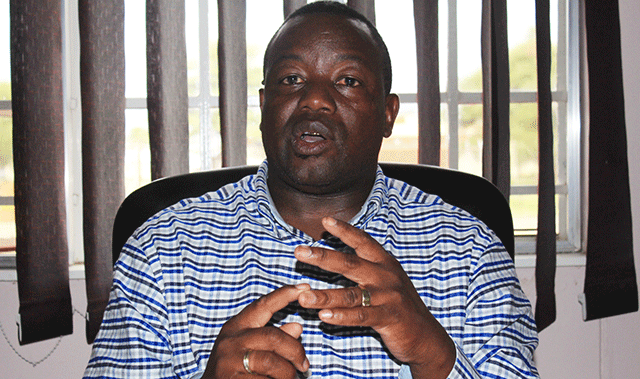Imagine entrusting your house keys, personal diary and financial documents to a stranger who promises to keep them safe but has no obligation to do so.
This is precisely the situation many Namibians find themselves in when using telemedicine services.
As digital health consultations surge across our nation, patients share their most intimate health details through virtual platforms with minimal legal protection for this sensitive information.
We are experiencing a digital health revolution.
The Covid-19 pandemic accelerated Namibia’s adoption of telemedicine, transforming it from a novelty into a necessity.
From remote villages in Kunene to urban centres in Windhoek and elsewhere, Namibians increasingly connect with healthcare providers through smartphones and computers.
This digital health revolution has expanded access to medical expertise, reduced travel burdens and helped manage our chronic physician shortage.
Yet as we embrace these benefits, we face a critical gap: Namibia lacks comprehensive regulations governing the protection of medical data in digital environments.
This regulatory vacuum leaves patient information vulnerable and healthcare providers without clear guidance.
LEARNING FROM OUR NEIGHBOURS
Other African nations have recognised this challenge and acted decisively.
Rwanda’s 2020 Data Protection and Privacy Law specifically addresses health data, classifying it as “sensitive personal data” requiring enhanced protection measures.
Healthcare providers must implement specific security protocols, conduct regular risk assessments and report breaches within 72 hours.
Kenya’s Digital Health Act of 2021 established a dedicated regulatory authority overseeing telemedicine platforms, mandating encryption standards and requiring explicit patient consent for data sharing.
The law also imposes significant penalties for security breaches, creating accountability within the digital health ecosystem.
South Africa’s Protection of Personal Information Act (Popia) includes specific provisions for health information, requiring healthcare providers to implement reasonable technical and organisational measures to prevent loss, damage, unauthorised access or unlawful processing of personal information.
Ghana’s Data Protection Commission issued specialised guidelines for telemedicine in 2022, detailing minimum security requirements including two-factor authentication, end-to-end encryption and regular security audits.
Meanwhile, Namibian healthcare providers operate in a regulatory grey zone. Many doctors – experts in medicine but rarely in cybersecurity – must make critical decisions about patient data protection without clear standards or support.
SECURITY IMPERATIVE
The stakes couldn’t be higher.
Medical records contain not just health information but personal identifiers, family histories and financial details.
In the wrong hands, this information can lead to identity theft, insurance fraud or personal blackmail.
For conditions carrying social stigma, such as HIV or mental health challenges, breaches can have devastating social consequences.
A Windhoek-based physician who began offering telemedicine consultations in 2020, describes the challenge: “I want to offer the best care to my patients, including those in remote areas. But I worry constantly about whether I’m doing enough to protect their information. We’re doctors, not information technology specialists. We need guidance.”
The current situation places an unfair burden on healthcare providers while leaving patients vulnerable.
Without standardised protocols, each provider creates their own security approach, resulting in inconsistent protection across the healthcare landscape.
THE WAY FORWARD
Relevant authorities must act decisively to secure our digital health future.
Here are five practical steps the Namibian government should take immediately:
- Enact comprehensive telemedicine legislation that specifically addresses data security requirements, patient consent protocols and penalties for data breaches.
This legislation should establish minimum security standards while being flexible enough to adapt to evolving technologies.
- Create a specialised digital health unit within the ministry of health staffed with both healthcare and cybersecurity experts.
This unit would develop guidelines, provide technical assistance to healthcare providers and monitor compliance with security standards.
- Implement a certification programme for telemedicine platforms operating in Namibia, ensuring they meet baseline security requirements before accessing the Namibian market.
This would include mandatory security features such as end-to-end encryption, secure authentication and regular security audits.
- Develop a healthcare provider training programme specifically focused on digital security practices.
This programme should be accessible, practical and designed for medical professionals without technical backgrounds.
- Establish a public awareness campaign educating patients about their rights regarding digital health information and how to identify secure telemedicine services.
This should include clear guidance on what security features to look for when choosing digital health platforms.
INNOVATION AND PROTECTION
The digital transformation of healthcare in Namibia offers tremendous opportunities to overcome geographical barriers and resource limitations in our healthcare system.
However, we must ensure this transformation doesn’t come at the cost of patient privacy and security.
As we move forward into this digital health future, the government must provide the regulatory framework that balances innovation with protection.
Our medical data is too valuable to leave unguarded. Namibians deserve healthcare that is not only accessible but secure.
The time for action is now. Our health – and our data – depend on it.
- Job Angula is an information security professional; job@acceler8namibia.com
Stay informed with The Namibian – your source for credible journalism. Get in-depth reporting and opinions for
only N$85 a month. Invest in journalism, invest in democracy –
Subscribe Now!










